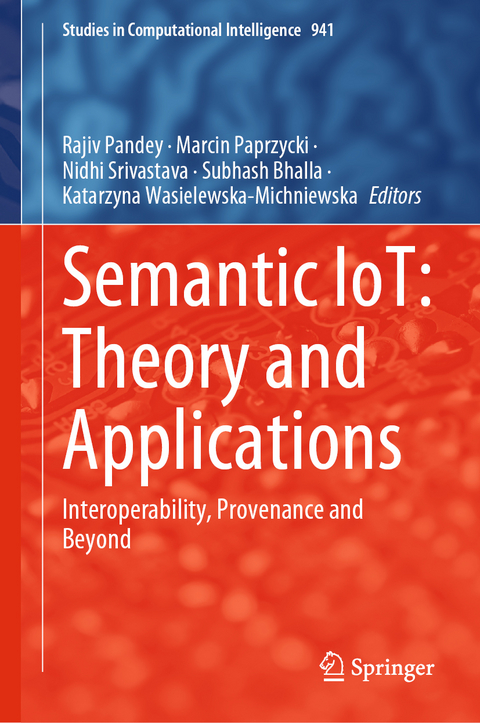
Semantic IoT: Theory and Applications
Springer International Publishing (Verlag)
978-3-030-64618-9 (ISBN)
This book is focused on an emerging area, i.e. combination of IoT and semantic technologies, which should enable breaking the silos of local and/or domain-specific IoT deployments.
Taking into account the way that IoT ecosystems are realized, several challenges can be identified. Among them of definite importance are (this list is, obviously, not exhaustive): (i) How to provide common representation and/or shared understanding of data that will enable analysis across (systematically growing) ecosystems? (ii) How to build ecosystems based on data flows? (iii) How to track data provenance? (iv) How to ensure/manage trust? (v) How to search for things/data within ecosystems? (vi) How to store data and assure its quality?
Semantic technologies are often considered among the possible ways of addressing these (and other, related) questions. More precisely, in academic research and in industrial practice, semantic technologies materialize in the following contexts (this list is, also, not exhaustive, but indicates the breadth of scope of semantic technology usability): (i) representation of artefacts in IoT ecosystems and IoT networks, (ii) providing interoperability between heterogeneous IoT artefacts, (ii) representation of provenance information, enabling provenance tracking, trust establishment, and quality assessment, (iv) semantic search, enabling flexible access to data originating in different places across the ecosystem, (v) flexible storage of heterogeneous data. Finally, Semantic Web, Web of Things, and Linked Open Data are architectural paradigms, with which the aforementioned solutions are to be integrated, to provide production-ready deployments.
A Look at Semantic Web Technology and the Potential Semantic Web Search in the Modern Era.- Provenance Data Models and Assertions: A Demonstrative Approach.- An Online Toolkit for Improving Quality, Accessibility, and Classification of Sensor-based Ontologies.- Creation of Ontological Knowledge Bases in the Semantic Web by Analyzing Table Structures.- Semantic IoT Interoperability and Data Analytics Using Machine Learning in Healthcare Sector.- How to Understand Better "Smart Vehicle"? Knowledge Extraction for the Automotive Sector Using Web of Things.- IFTTT Rely Based a Semantic Web Approach to Simplifying Trigger-Action Programming for Industry Application Control with IoT Scenario.- Semantic Internet of Things (IoT) Interoperability Using Software Defined Network (SDN) and Network Function Virtualization (NFV).
| Erscheinungsdatum | 14.04.2021 |
|---|---|
| Reihe/Serie | Studies in Computational Intelligence |
| Zusatzinfo | XX, 415 p. 274 illus., 111 illus. in color. |
| Verlagsort | Cham |
| Sprache | englisch |
| Maße | 155 x 235 mm |
| Gewicht | 816 g |
| Themenwelt | Informatik ► Theorie / Studium ► Künstliche Intelligenz / Robotik |
| Technik | |
| Schlagworte | Interoperability • IOT & Big Data Web • Provenance • Semantic Data Representation • Semantic IoT • Semantic networks |
| ISBN-10 | 3-030-64618-1 / 3030646181 |
| ISBN-13 | 978-3-030-64618-9 / 9783030646189 |
| Zustand | Neuware |
| Haben Sie eine Frage zum Produkt? |
aus dem Bereich


